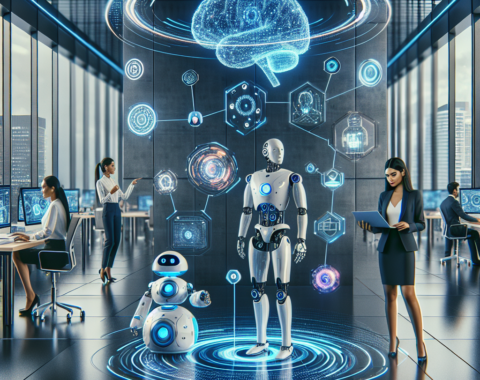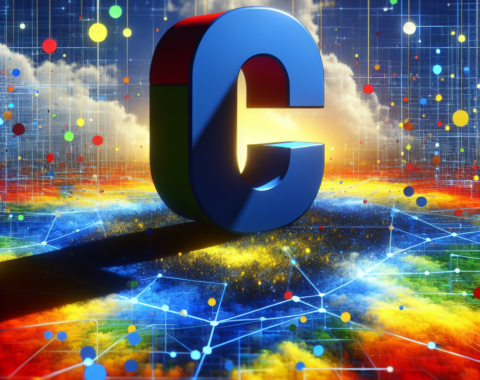
AI Innovations and Predictions Shaping the Future by 2025
The landscape of artificial intelligence (AI) continues to evolve at a blistering pace. By 2025, we can anticipate groundbreaking advancements that promise to transform industries, redefine jobs, and enhance our daily lives. Let’s explore what the future holds for AI by delving into significant innovations and their anticipated impact.
AI in Automation and Industry 4.0
As we approach 2025, the fusion of AI with automation is expected to power the fourth industrial revolution, often referred to as Industry 4.0. AI-powered automation will streamline operations across various sectors, enhancing productivity and efficiency like never before.
Smart Factories
Smart factories will leverage AI for real-time data analysis, ensuring optimal performance, minimizing downtime, and reducing waste. Expect:
- Predictive Maintenance: AI algorithms will foresee equipment failures before they happen, significantly reducing costly breakdowns.
- Custom Manufacturing: AI will enable the production of highly customized products at speeds and costs that were previously unimaginable.
Intelligent Supply Chains
The integration of AI in supply chain management will revolutionize how goods are produced and delivered worldwide.
- Optimized Logistics: AI will enhance logistics planning by predicting demand fluctuations and optimizing delivery routes.
- Inventory Management: Real-time inventory tracking supported by AI will prevent shortages and overstocking.
AI in Healthcare
Healthcare is set to be one of the biggest beneficiaries of AI by 2025, with machine learning models and predictive analytics paving the way for groundbreaking changes.
Diagnostic Revolution
AI in healthcare will enhance the accuracy and speed of diagnosis.
- Early Detection: AI systems trained on vast datasets will detect diseases like cancer in their earliest stages, significantly improving patient outcomes.
- Personalized Medicine: AI will tailor treatments to individuals based on genetic, environmental, and lifestyle factors.
Telemedicine and Virtual Care
The expansion of AI in telemedicine will continue revolutionizing patient care.
- Enhanced Patient Monitoring: AI-driven wearable devices will provide continuous health monitoring, alerting healthcare providers to potential issues in real-time.
- Virtual Health Assistants: AI-powered chatbots will take on administrative tasks, freeing healthcare professionals to focus more on patient care.
AI in Transportation
From autonomous vehicles to optimized traffic management, AI is set to redefine transportation by 2025.
Autonomous Vehicles
While fully autonomous vehicles are not yet ubiquitous, their development is accelerating.
- Safety Improvements: AI will significantly reduce road accidents caused by human error, making transportation safer.
- Traffic Congestion Reduction: Vehicles equipped with AI will communicate with each other to minimize congestion and reduce travel times.
Intelligent Cities
AI will be essential in developing smarter cities with seamless transportation networks.
- AI-Driven Traffic Management: AI will analyze urban traffic patterns in real-time, adjusting signals and routes to optimize flow.
- Public Transportation Optimization: AI will enhance public transit systems by predicting demand and adjusting services accordingly.
AI in Everyday Life
AI’s impact in everyday life will grow exponentially, integrating seamlessly into numerous aspects of our routines.
Smart Homes
AI is set to make homes smarter and more intuitive by 2025.
- Energy Efficiency: AI will optimize energy use, reducing costs and the carbon footprint.
- Home Security: Advanced AI systems will provide enhanced security features, offering real-time monitoring and alerts.
Personalized Experiences
AI will tailor experiences in various domains to suit individual preferences.
- Content Recommendations: AI will provide more accurate content recommendations in streaming services and digital media, enhancing user satisfaction.
- Virtual Shopping Assistants: AI will assist consumers in making informed purchasing decisions based on their unique preferences and habits.
Ethical and Regulatory Challenges
As AI takes on a more dominant role, ethical and regulatory challenges need addressing. By 2025, the focus will be on establishing frameworks that balance innovation with the protection of individual rights and privacy.
Data Privacy and Security
With increased AI integration comes the imperative need for robust data protection.
- Privacy-Preserving AI: Techniques such as federated learning will evolve to safeguard user data while enabling AI advancements.
- Regulatory Frameworks: Governments and organizations will collaborate to establish regulations that ensure ethical AI deployment.
Bias and Fairness
AI systems must be free of bias to ensure equitable outcomes.
- Bias Mitigation Tools: Continued development of tools to identify and eliminate bias in AI models.
- Diverse Data Sets: Efforts to ensure AI systems are trained on diverse data sets that reflect a wide range of populations.
Conclusion
As we look towards 2025, one thing is certain: AI will increasingly shape the future across various domains. Its potential to revolutionize industries, enhance quality of life, and provide solutions to complex problems is enormous. However, alongside these developments comes the need for careful consideration of ethical implications, as we strive to ensure that AI benefits all sectors of society. By anticipating these changes and preparing accordingly, we stand to unlock the vast potential of AI responsibly and effectively.




